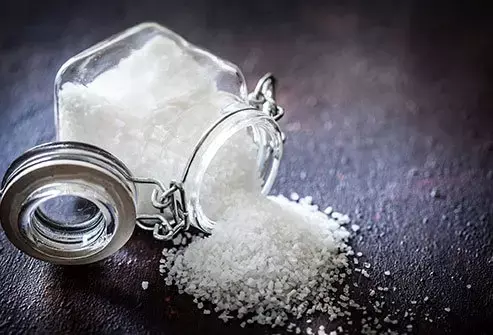- Home
- Medical news & Guidelines
- Anesthesiology
- Cardiology and CTVS
- Critical Care
- Dentistry
- Dermatology
- Diabetes and Endocrinology
- ENT
- Gastroenterology
- Medicine
- Nephrology
- Neurology
- Obstretics-Gynaecology
- Oncology
- Ophthalmology
- Orthopaedics
- Pediatrics-Neonatology
- Psychiatry
- Pulmonology
- Radiology
- Surgery
- Urology
- Laboratory Medicine
- Diet
- Nursing
- Paramedical
- Physiotherapy
- Health news
- Fact Check
- Bone Health Fact Check
- Brain Health Fact Check
- Cancer Related Fact Check
- Child Care Fact Check
- Dental and oral health fact check
- Diabetes and metabolic health fact check
- Diet and Nutrition Fact Check
- Eye and ENT Care Fact Check
- Fitness fact check
- Gut health fact check
- Heart health fact check
- Kidney health fact check
- Medical education fact check
- Men's health fact check
- Respiratory fact check
- Skin and hair care fact check
- Vaccine and Immunization fact check
- Women's health fact check
- AYUSH
- State News
- Andaman and Nicobar Islands
- Andhra Pradesh
- Arunachal Pradesh
- Assam
- Bihar
- Chandigarh
- Chattisgarh
- Dadra and Nagar Haveli
- Daman and Diu
- Delhi
- Goa
- Gujarat
- Haryana
- Himachal Pradesh
- Jammu & Kashmir
- Jharkhand
- Karnataka
- Kerala
- Ladakh
- Lakshadweep
- Madhya Pradesh
- Maharashtra
- Manipur
- Meghalaya
- Mizoram
- Nagaland
- Odisha
- Puducherry
- Punjab
- Rajasthan
- Sikkim
- Tamil Nadu
- Telangana
- Tripura
- Uttar Pradesh
- Uttrakhand
- West Bengal
- Medical Education
- Industry
Salt substitute acts better in stroke prevention: Circulation

Australia: Replacing conventional salt with salt substitute was a cost-effective strategy for stroke prevention and quality of life improvement among The Salt Substitute and Stroke Study (SSaSS) participants, says an article published in Circulation Journal.
The SSaSS, a five-year cluster randomized controlled trial, found that replacing regular salt with a reduced-sodium added-potassium salt substitute reduced the risks of stroke, major adverse cardiovascular events, and premature death in people with a history of stroke or uncontrolled high blood pressure in rural China. Ka-Chun Li and colleagues conducted this study to analyze the cost-effectiveness profile of the intervention.
This was a within-trial economic evaluation of SSaSS, carried out from the standpoint of the healthcare system and customers. The major health outcome studied was a stroke, and the impacts on quality-adjusted life years were measured (QALYs). The expenses of healthcare were derived from participant health insurance information and the literature. All expenses (Chinese Yuan - CNY) and QALYs were discounted at a rate of 5% each year. Bivariate multilevel models were used to estimate incremental expenditures, stroke events avoided, and QALYs gained.
The results of this study stated as follow:
1. The average length of follow-up for the 20,995 individuals was 4.7 years.
2. During this time, substituting conventional salt with salt replacement lowered the risk of stroke by 14%, and the salt substitute group had 0.054 more QALYs per person on average.
3. The salt replacement group had reduced average expenses (CNY 1,538 for the intervention group and CNY 1,649 for the control group) (CNY 110 less).
4. The intervention was dominating in terms of stroke prevention as well as QALYs gained.
5. Sensitivity tests revealed that these results were robust, with the exception of when the price of salt replacement was raised to the median and maximum market values observed in China.
6. The salt replacement intervention had a 95.0% chance of being cost-effective and a greater than 99.9% chance of being cost-saving.
In conclusion, the findings of this study showed the efficiency of the salt-based substitution for regular salt in stroke prevention and improving the quality of life.
Reference:
Li, K.-C., Huang, L., Tian, M., Di Tanna, G. L., Yu, J., Zhang, X., Yin, X., Liu, Y., Hao, Z., Zhou, B., Feng, X., Li, Z., Zhang, J., Sun, J., Zhang, Y., Zhao. Cost-effectiveness of a Household Salt Substitution Intervention: Findings From 20,995 Participants of the Salt Substitute and Stroke Study (SSaSS). In Circulation. Ovid Technologies (Wolters Kluwer Health). https://doi.org/10.1161/circulationaha.122.059573
Keywords: Circulation, salt, stroke, salt substitute, cardiovascular events, quality of life, rock salt, blood pressure, sodium, potassium, American Heart Association, AHA
Medical Dialogues consists of a team of passionate medical/scientific writers, led by doctors and healthcare researchers. Our team efforts to bring you updated and timely news about the important happenings of the medical and healthcare sector. Our editorial team can be reached at editorial@medicaldialogues.in.
Dr Kamal Kant Kohli-MBBS, DTCD- a chest specialist with more than 30 years of practice and a flair for writing clinical articles, Dr Kamal Kant Kohli joined Medical Dialogues as a Chief Editor of Medical News. Besides writing articles, as an editor, he proofreads and verifies all the medical content published on Medical Dialogues including those coming from journals, studies,medical conferences,guidelines etc. Email: drkohli@medicaldialogues.in. Contact no. 011-43720751


